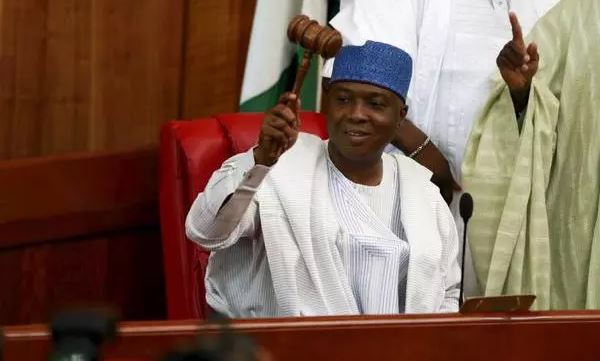As we approach 100 Days of this APC-led dispensation, it is important to recount the achievements of President Muhammadu Buhari’s administration so far, and the actions taken by the 8th Senate of the Federal Republic of Nigeria, under the leadership of Dr. Abubakar Bukola Saraki, who has been working in tandem with President Muhammed Buhari’s reformation agenda, and the APC’s ‘Roadmap to a New Nigeria.’
For starters, poor power supply, which has been a hindrance to foreign investors sinking money into Nigeria’s economy has received a major boost during the first 100 days of Buhari’s administration. Surprisingly, somehow, with just the interpretation of the President’s body language on non-performance, this important sector of Nigeria’s economy suddenly woke up from its long years of slumber.
Over the years, Nigeria has experienced a disgraceful and continuous trend of erratic, and at times, non-existent power supply. To add insult to injury, the citizens of our country have continued to pay exorbitant charges at the end of the month for inconsistent power distribution into their homes. With just 100 days under his belt, Buhari can be credited with ensuring that in the past two months, electricity generation has continued to stay above 4,500MW. This is a noteworthy achievement as before the new government came on board, power generation in Nigeria was between 3,000MW and 3,500MW. Even the ‘New School of Wailing Wailers’ must attest to this fact.
At the same time, with increased power generation on one hand, the 8th Senate, under the leadership of Saraki, has worked in sync with the executive arm to ensure that Nigerian’s were no longer getting ‘extorted’ by paying bulk charges to the power distribution companies. In a resolution dated August 11th, 2015, the Senate read the riot act to the Nigerian Electricity Regulatory Commission (NERC), stating that the practice of making Nigerians pay fixed charges through bulk metering would no longer be permitted.
The motion, which was titled, “The Unfair Trade Practices of the Electricity Distribution Companies in Nigeria”, directed NERC to immediately abolish the practice of fixed charges and bulk metering of communities. Less than 10 days later, NERC complied stating that henceforth, based on the Senate’s query, consumers would only pay for energy that they consumed.
Going back to the season of campaigns and electioneering, many people will remember that reviving Nigeria’s agricultural potential was a part of the APC’s promises – as stipulated in its road map. President Buhari, has since said that Nigerians must stop paying mere ‘lip-service’ to the agrictultural sector, and must start to see it as an option for employment, and for boosting our collective economy.
In one of his statements issued over the past 100 days, the President said: “It is time [for us] to go back to the land. We must face the reality that the petroleum we had depended on for so long will no longer suffice. We campaigned heavily on agriculture, and we are ready to assist as many want to go into agricultural ventures.”
In line with the President’s commitment, the 8th Senate has worked to ensure that moving forward, there needs to be a standardization of Nigerian food crops – to ensure that we are able to trade our agricultural produce internationally. In a resolution, brought to the floor of the Senate by the Deputy Minority Whip, Francis Alimikhena, the Senate considered the effects of the ban placed by the European Union (EU) on some of Nigeria’s food produce. The Senate President, Dr. Saraki, in line with the resolution, directed that as soon as the standing Committee on Health and Agriculture was constituted, the committee would be tasked with working in partnership with the National Agency for Food and Drugs Administration and Control (NAFDAC) to tighten its oversight on locally produced food and agricultural items to ensure global acceptance.
Finally, in one of the most welcome developments in recent times, given that President Buhari was elected on an anti-corruption platform, this administration has worked to plug the loopholes, leakages, and avenues that have contributed to corruption in the past. These efforts have been yielding positive results, as in recent times; Nigeria has reported high revenue earnings from crude – despite the global downturn in oil prices.
To compliment this fight, in order to ensure that the agency tasked with finding citizens that perpetuate financial crimes continues to have the moral authority to do so, the 8th Senate, responding to a petition by an ordinary Nigerian citizen, recently invited the Chairman of the Economic and Financial Crimes Commission (EFCC) to respond to allegations of corruption within the agency.
These developments, despite the ongoing-nature of many of them, show that this APC government, contrary to many of the reports that have been channeled through the media, is working in-step, and in-sync; with the efforts of the legislative arm, supplementing the sweeping strides been undertaken by the executive arm.
If this continues, truly, Nigeria can be great again

